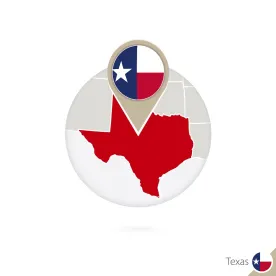On March 22, 2020, the Chief Executive Officer of Dallas County, Texas (County Judge Clay Jenkins) issued a “Stay Home Stay Safe” order for residents of Dallas County. The Order takes effect at 11:59 p.m. on March 23 and continues until midnight on April 3rd.
The major effect of the Order is to prohibit Dallas County residents from leaving their residence (which includes homes, hotels, motels, shared rentals and similar facilities) unless they are engaging in an activity (an “Essential Activity”) or a purpose (working for an “Essential Business”) allowed by the Order. Moreover, all public or private gatherings of any number of people occurring outside a single household or living unit are specifically prohibited. And, the Order prohibits all elective medical, surgical, and dental procedures in Dallas County.
Additionally, all businesses operating within Dallas County are required to cease all activities at facilities located within the County, unless the business is an “Essential Business.” Importantly, however, even non-essential businesses are permitted to continue operations so long as those operations are conducted by employees or contractors performing activities at their own residences (i.e. working from home).
The Order creates specific rules for households where a person has tested positive for COVID-19. In particular, if someone in a household has tested positive, the entire household must isolate at home; they cannot go to work, school, or any other community function.
While at first blush the Order appears restrictive, the reality is that it allows for numerous and diverse exceptions across a variety of commercial operations. By way of example, “dry cleaners” and “liquor stores” are considered “Essential” and, therefore, are allowed to remain open during the restricted period. The Order also allows individuals to use “shared or outdoor spaces” so long as—to the extent reasonably possible—they engage in social distancing practices; including staying at least six feet from any other person while outside their Residence.
Individuals may leave their residences only in the following instances:
-
For purposes of performing Essential Activities; or
-
To operate one of eight categories of Essential Businesses.
The above terms—and the numerous exceptions contained within—are more fully explained via the chart below:

 The Order also addresses the current run on toilet tissue. On that issue, the Order institutes a two-week restriction on the purchase of toilet tissue that limits sales to a greater of (12) rolls or (1) package per purchase. Notably, the Order contemplates that—as part of the current pandemic—businesses may retool their operations so as to produce ventilators. Consequently, a company may apply for an “Essential Business” exemption under the Order if that business has sufficiently modified its operations so that a “substantial part” of its business comprises the manufacturing of ventilators.
The Order also addresses the current run on toilet tissue. On that issue, the Order institutes a two-week restriction on the purchase of toilet tissue that limits sales to a greater of (12) rolls or (1) package per purchase. Notably, the Order contemplates that—as part of the current pandemic—businesses may retool their operations so as to produce ventilators. Consequently, a company may apply for an “Essential Business” exemption under the Order if that business has sufficiently modified its operations so that a “substantial part” of its business comprises the manufacturing of ventilators.
The Order provides no further guidance to employers regarding other developing issues such as WARN Act notices, sick leave, or the newly enacted federal Families First Coronavirus Act. Employers are encouraged to reach out to their Sheppard Mullin attorney with questions or for further information and guidance on these developing issues.
As you are aware, things are changing quickly and there is no clear-cut authority or bright line rules. This is not an unequivocal statement of the law, but instead represents our best interpretation of where things currently stand. This blog post does not address the potential impacts of the numerous other local, state and federal orders that have been issued in response to the COVID-19 pandemic, including, without limitation, potential liability should an employee become ill, requirements regarding family leave, sick pay and other issues.




 />i
/>i

